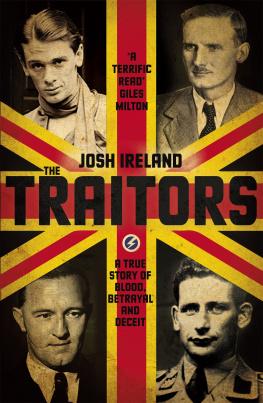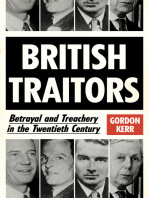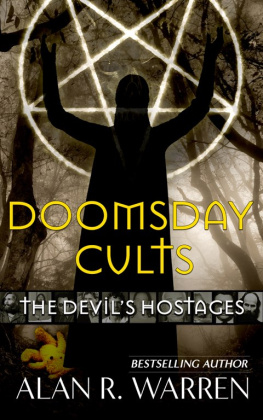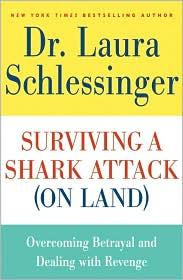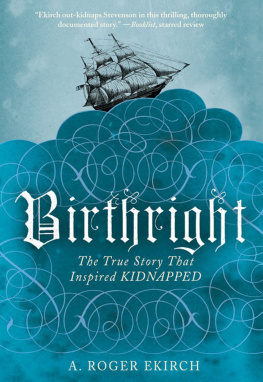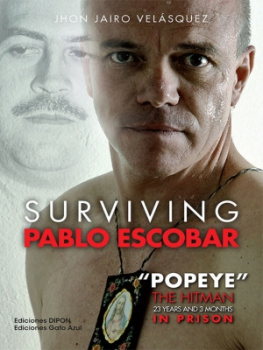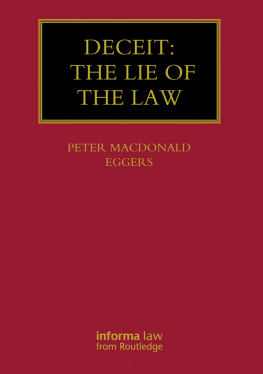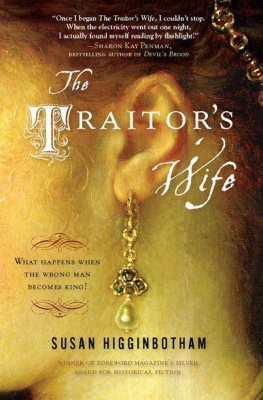Ireland - The Traitors : A True Story of Blood, Betrayal and Deceit
Here you can read online Ireland - The Traitors : A True Story of Blood, Betrayal and Deceit full text of the book (entire story) in english for free. Download pdf and epub, get meaning, cover and reviews about this ebook. year: 2017, publisher: Hachette Book Group USA, genre: Detective and thriller. Description of the work, (preface) as well as reviews are available. Best literature library LitArk.com created for fans of good reading and offers a wide selection of genres:
Romance novel
Science fiction
Adventure
Detective
Science
History
Home and family
Prose
Art
Politics
Computer
Non-fiction
Religion
Business
Children
Humor
Choose a favorite category and find really read worthwhile books. Enjoy immersion in the world of imagination, feel the emotions of the characters or learn something new for yourself, make an fascinating discovery.
- Book:The Traitors : A True Story of Blood, Betrayal and Deceit
- Author:
- Publisher:Hachette Book Group USA
- Genre:
- Year:2017
- Rating:5 / 5
- Favourites:Add to favourites
- Your mark:
- 100
- 1
- 2
- 3
- 4
- 5
The Traitors : A True Story of Blood, Betrayal and Deceit: summary, description and annotation
We offer to read an annotation, description, summary or preface (depends on what the author of the book "The Traitors : A True Story of Blood, Betrayal and Deceit" wrote himself). If you haven't found the necessary information about the book — write in the comments, we will try to find it.
The Traitors : A True Story of Blood, Betrayal and Deceit — read online for free the complete book (whole text) full work
Below is the text of the book, divided by pages. System saving the place of the last page read, allows you to conveniently read the book "The Traitors : A True Story of Blood, Betrayal and Deceit" online for free, without having to search again every time where you left off. Put a bookmark, and you can go to the page where you finished reading at any time.
Font size:
Interval:
Bookmark:

Josh Ireland was born in 1981 and lives in London. After leaving York University with a masters in history he worked in publishing for eight years and is now a freelance editor and writer. The Traitors is his first book.


www.johnmurray.co.uk
First published in Great Britain in 2017 by John Murray (Publishers)
An Hachette UK company
Copyright Josh Ireland 2017
The right of Josh Ireland to be identified as the Author of the Work has been asserted by him in accordance with the Copyright, Designs and Patents Act 1988.
All rights reserved.
No part of this publication may be reproduced, stored in a retrieval system, or transmitted, in any form or by any means without the prior written permission of the publisher.
A CIP catalogue record for this title is available from the British Library
ISBN 978 1 47362 034 6
John Murray (Publishers)
Carmelite House
50 Victoria Embankment
London EC4Y 0DZ
www.johnmurray.co.uk
To Victoria
Contents
Ive gone to find a traitor. A full-grown, four-square, red-toothed, paid-up traitor.
John le Carr, A Small Town in Germany , 1968

J OHN AMERY. HAROLD Cole. William Joyce. Eric Pleasants. Few people talk about these men any more. If I mention their names in conversation, only William Joyce or Lord Haw-Haw, as he is better known is recognised with any regularity; references to the others are usually greeted by blank stares. But seventy-five years ago they were among the most notorious men in Britain, renegades infamous for having thrown in their lot with Nazi Germany and betrayed their country.
These were all complex, flawed men who led existences replete with tragedy, sex, compromise, drink, scandal, exalted ambition and shabby failure. They travelled to wartime Paris as it tried to make sense of Frances catastrophic defeat in 1940 and witnessed Berlins progress from triumphant capital of the Thousand Year Reich to a bombed-out collection of ruins; they stayed in everything from lavish hotel suites to stinking cells in Stalins gulags, and crossed paths with everyone from brave French rsistants willing to lay down their lives in the name of freedom to remorseless Nazi killers. While fascinating in themselves, their stories continue to offer urgent lessons for our times.
The narrative starts at the beginning of the 1930s, for in their own ways these traitors were all formed by their experiences of that low dishonest decade, where none of them were ever able to find a comfortable home. By following their lives over the years that followed I hope to illuminate something more about how a man might come to betray his country, and how he might then go on to try to justify his actions both to himself and to others. Occasionally these men swim in and out of each others stories, at other times they plough their own furrow, but in telling their tales in parallel I want to show the way in which each of them embodies though never in a neat, symbolic fashion a different kind of perfidy. I have tried to get as close as possible to their thoughts and emotions, and in doing so I hope that to some extent I have been able to restore some of the pasts immediacy, a sense of it as a chaotic bundle of contingent events rather than a stately and inevitable progression towards the present day.
The word traitor is still regularly lobbed like a Molotov cocktail into our contemporary political discourse. It is a word that demands unpacking, to show, if nothing else, that treachery is a more complex process than assumptions about Judas and his thirty pieces of silver would lead you to believe. Treason can be provoked as much by a sincerely held desire to protect ones country as by a desperate bid to save ones skin; while patriotism can turn septic, idealism can sour, and extreme politics can come to exert a narcotic and ultimately fatal allure.
Treachery is often a reaction to a very specific, often uncomfortable, historical context. This books four subjects led untidy existences that were fat with accident and mess, but that were shaped by the epoch they inhabited. They came of age in a time of tectonic uncertainty: across Europe, country after country had fallen into the hands of nationalist demagogues, and democracy suddenly seemed fragile, unable to keep pace with a rapidly changing world. Britain, already coming to terms with severe industrial decline, its eclipse by other powers such as the USA and the Soviet Union, and a sustained economic crisis that robbed millions of their livelihoods, seemed unable to decide what kind of relationship it wanted with the rest of the Continent. It was an era full of pitfalls for the nave and unwary, but also one that bullied its way into the biographies of even those desperate to be left to their own devices. The war that followed in 1939 became, whether they liked it or not, the central fact of these four mens existences. Their circumstances demanded a response: each answered in his own fashion, and each paid the price for the decisions he made.
Where I have included footnotes in the main text it is to provide supplementary information that would otherwise render a particular sentence too dense. I have not always used inverted commas to indicate when I am quoting these mens thoughts and opinions, but full references are supplied in the endnotes at the back of the book. This book draws on a number of different sources including but not limited to memoirs, diaries and statements given to the security services to reconstruct these mens stories. There are often discrepancies between the narratives offered by different actors in the same events; in each of these cases I have opted for the account that seems most convincing once motive, context and any other testimony have been borne in mind.

a year earlier Sir Oswald reminded voters that it is an offence against God and man that women should be imprisoned in the damp and disease-ridden walls of a slum house and have to bring up children to share their misery. He might have made that observation ten years ago; nothing has changed. Nothing looks likely to.
Opposite him sits the Conservative Party, a group of reanimated fossils dressed in frock-coats. There is Neville Chamberlain, his starched wing collar and patrician umbrella marking him out for what he is, a relic of the last century. And their leader, Stanley Baldwin, a man whose complacent equanimity exemplifies the affinity between the love of Conservatism and the fear of ideas. and fond of saying things like: one of the reasons why our people are alive and flourishing and have avoided many of the troubles that have fallen to less happy nations, is that we have never been guided by logic in anything we did. He is not a man for these tumultuous times.
But Stanley Baldwin and the party he leads are supposed to be afraid of change. The young Labour minister may despise many of them, but he doesnt blame them. No, it is the men on his own side for whom he reserves the bulk of his ire. He has pressed and harried, but every idea he has put forward to help relieve the current situation has been ignored or dismissed.
Font size:
Interval:
Bookmark:
Similar books «The Traitors : A True Story of Blood, Betrayal and Deceit»
Look at similar books to The Traitors : A True Story of Blood, Betrayal and Deceit. We have selected literature similar in name and meaning in the hope of providing readers with more options to find new, interesting, not yet read works.
Discussion, reviews of the book The Traitors : A True Story of Blood, Betrayal and Deceit and just readers' own opinions. Leave your comments, write what you think about the work, its meaning or the main characters. Specify what exactly you liked and what you didn't like, and why you think so.

